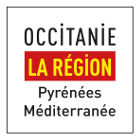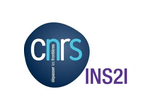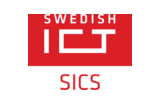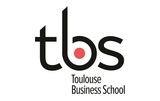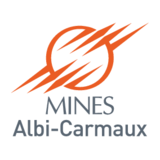Welcome to CP 2016

The International Conference on Principles and Practice of Constraint Programming will take place in Toulouse, France, from September 5th to September 9th 2016.
This is the 22nd edition of the annual conference on all aspects of computing with constraints, including: theory, algorithms, environments, languages, models, systems, and applications such as decision making, resource allocation, scheduling, configuration, and planning. The Association for Constraint Programming has a list of previous conferences in this series.
The CP 2016 program will include presentations of high quality scientific papers on constraints technology. In addition to the usual technical track, the CP 2016 conference will feature thematic tracks. Each track has a specific sub-committee to make sure that competent reviewers will review the papers submitted by people of these domains.
A number of invited talks on important topics relevant to the field will also be presented. Beyond the usual workshop, tutorial and doctoral programs, we will repeat the published paper track in which important results that have recently appeared in journals or sister conferences will be presented, the journal publication fast track for outstanding submissions, and the industry outreach program. Finally, we introduce this year a challenge based on a realistic industrial grade optimization problem.
Technical Track
Michel Rueher, University of Nice Sophia Antipolis, France.
Track Committee
- Carlos Ansótegui, Universitat de Lleida
- Fahiem Bacchus, University of Toronto
- Roman Bartak, Charles University in Prague
- Chris Beck, University of Toronto
- Nicolas Beldiceanu, TASC (CNRS/INRIA), Mines Nantes
- David Bergman, University of Connecticuut
- Christian Bessiere, CNRS
- Mats Carlsson, SICS
- David Cohen, Royal Holloway, University of London
- Alessandro Dal Palù, University of degli Studi di Parma
- Yves Deville, UCLouvain
- Bistra Dilkina, Georgia Institute of Technology
- Carmen Gervet, Université de Montpellier
- Arnaud Gotlieb, Simula Research Laboratory
- Youssef Hamadi, Algorithmic Trading,
- Emmanuel Hebrard, LAAS, CNRS
- John Hooker, Carnegie Mellon University
- Hiroshi Hosobe, Hosei University
- George Katsirelos, INRA, Toulouse
- Yahia Lebbah, University of Oran 1
- Christophe Lecoutre, CRIL
- Jimmy Lee, The Chinese University of Hong Kong
- Michele Lombardi, University of Bologna
- Inês Lynce, Tecnico Ulisboa
- Amnon Meisels, Ben Gurion University of the Negev
- Pedro Meseguer, IIIA - CSIC
- Claude Michel, University of Nice Sophia Antipolis
- Ian Miguel, The University of St Andrews
- Barry O'Sullivan, 4C, University College Cork, Ireland
- Justin Pearson, Uppsala University
- Laurent Perron, Google France
- Gilles Pesant, Ecole Polytechnique de Montréal
- Justyna Petke, University College London
- Andrea Rendl, University of Klagenfurt, Austria
- Pierre Schaus, UCLouvain
- Christian Schulte, KTH Royal Institute of Technology
- Peter J. Stuckey, University of Melbourne
- Michael Trick, Carnegie Mellon
- Roland Yap, National University of Singapore
- Stanislav Živný, University of Oxford
We solicit papers that report on significant, original, and previously unpublished research on all aspects of computing with constraints.
Application Track
Laurent Michel, University of Connecticut, USA.
Track Committee
- Chris Beck, University of Toronto
- Hadrien Cambazard, G-SCOP, Grenoble INP, CNRS, University Joseph Fourier
- Simon De Givry, INRA - UBIA
- Philip Kilby, NICTA and the Australian National University
- Andrea Lodi,
- Michele Lombardi, University of Bologna
- Claude Michel, I3S - (University of Nice / CNRS)
- Michela Milano, DEIS Universita' di Bologna
- Barry O'Sullivan, 4C, University College Cork, Ireland
- Louis-Martin Rousseau, cole Polytechnique de Montral
- Pierre Schaus, UCLouvain
- Paul Shaw, IBM
- Helmut Simonis, 4C
- Pascal Van Hentenryck, University of Michigan
CP 2016 solicits papers promoting applications based on CP technologies. We especially look for industrial and academic users of constraint technology to submit papers on completed or on-going practical projects. Papers comparing constraint technology to other optimization techniques (e.g., MIP, SAT, local search…) with a sound empirical evaluation are equally welcome.
The ideal paper will clearly define the application, the users’ benefits, describe the efforts needed to build the application and the time frame in which it was delivered. While not strictly mandatory, novelty of the application domain or the use of CP technology by itself or within hybrids is a plus.
Computational Sustainability Track
Carla Gomes, Cornell University, Ithaca, USA;
Michela Milano, University of Bologna,
Italy;
Christine Solnon, INSA de Lyon France.
Track Committee
- Romain Billot, IFSTTAR
- Bistra Dilkina, Georgia Institute of Technology
- Serge Fenet, Laboratoire d'InfoRmatique en Image et Systèmes d'information
- Michele Lombardi, DISI, University of Bologna
- Barry O'Sullivan, University College Cork, Ireland
- Emmanuel Prados, INRIA
- Louis-Martin Rousseau, cole Polytechnique de Montral
- Helmut Simonis, 4C
Computational Sustainability aims to apply techniques from computing and information science and related disciplines (e.g., operations research, applied mathematics, and statistics) for balancing environmental, economic, and societal needs for sustainable development. Sustainability domains and areas include:
-
Smart cities (e.g., sensor networks, energy efficient buildings, urban infrastructure, urban flows, traffic management, participatory and direct democracy, etc.)
-
Human-Built Systems and Land Use (e.g., transportation systems, data-centres, smart grid, food systems, agriculture, etc.)
-
Natural resources and ecosystems (e.g., climate, atmosphere, water, oceans, forest, land, soil, biodiversity, species, etc.)
-
Economics and Human Behavior (e.g., human well-being, poverty, infectious diseases, over-population, resource harvesting, etc.)
-
Energy resources (e.g., renewable energy, energy management and planning, energy market etc.)
This thematic track invites the submission of research papers on novel computational concepts, models, techniques, and systems to address problems in computational sustainability. Papers should describe computational sustainability research, or explain how the research addresses problems, opportunities or issues underlying computational sustainability challenges, or describe a computational sustainability challenge or application. Papers on challenges in computational sustainability are also welcome.
CP and Biology Track
Agostino Dovier, University of
degli Studi di Udine, Italy;
Alessandro Dal Palù, University of degli Studi
di Parma, Italy.
Track Committee
- Rolf Backofen, Albert-Ludwigs-University Freiburg
- Pedro Barahona, Universidade Nova de Lisboa
- Alexander Bockmayr, Freie Universität Berlin
- Mats Carlsson, SICS
- Simon De Givry, INRA - UBIA
- François Fages, Inria Paris-Rocquencourt
- Ines Lynce, INESC-ID/IST, University of Lisbon
- Nigel Martin, Birkbeck, University of London
- Alberto Policriti,
- Enrico Pontelli, New Mexico State University
- Sylvain Soliman, Inria Paris-Rocquencourt
- Sebastian Will, University Leipzig
During the last years, Biology has become a source of challenging problems for the entire field of Computer Science in general, and for the areas of computational logic and constraint programming in particular. Successful approaches to these problems are likely to have significant applications in several fields of research, such as medicine, agriculture, industry, etc. Several successful applications of the Logic and Constraint Programming paradigms in Bioinformatics have been carried out in the last years, in the area of phylogenetic tree reconstruction, in haplotype inference, in proteins structure prediction, in RNA secondary structure prediction, and in System Biology, just to cite a few. Workshops on constraints and bioinformatics are organized yearly since 2005 and a special track of the ALMOB Journal on the same topic is active since 2012.
Music Track
Charlotte Truchet, University of Nantes, France.
Track Committee
- Gerard Assayag, Ircam
- Mathieu Giraud, CNRS, LIFL, INRIA, Université Lille 1
- Dorien Herremans, University of Antwerp
- Justin Pearson, Uppsala University
- Camilo Rueda, Universidad Javeriana
- Örjan Sandred, U of M
Since its early beginning, Constraint Programming has a long history of musical applications, like automatic harmonization, rhythm generation tools, musical generation in a given style, constraint languages for music, etc. The music track welcomes articles on any kind of musical application, including (but not restricted to): music or sound generation or processing, music modelling or analysis, generation of a particular musical aspect (chords, notes, rhythms, etc.) of a musical piece, etc. On the CP side, we welcome submissions for any kind of CP techniques, whether they are used in a classical way (solving) or a less classical way (modelling languages, use of CP solving traces, auralization, etc.).
Testing and Verification Track
Andreas Podelski, University of Freiburg Germany;
Arnaud Gotlieb, Simula Research Laboratory,
Norway.
Track Committee
- Parosh Aziz Abdulla, Uppsala University
- Sebastien Bardin, CEA LIST
- Eyal Bin, IBM
- Mats Carlsson, SICS
- Giorgio Delzanno, DIBRIS, Università di Genova
- Catherine Dubois, ENSIIE-CEDRIC
- Pierre Flener, Uppsala University
- Joxan Jaffar, National University of Singapore
- Nadjib Lazaar, UM2-LIRMM
- Daniel Le Berre, CNRS - Université d'Artois
- Morten Mossige, ABB Robotics
- Justin Pearson, Uppsala University
- Justyna Petke, University College London
- Cédric Pralet, ONERA Toulouse
- Harald Sondergaard, The University of Melbourne
- Peter J. Stuckey, University of Melbourne
The last decade has witnessed a considerable improvement in the efficiency and expressive power of CP solvers, with a consequent impact on (software and hardware) testing and verification application. A deeper integration of solver and application is expected with on going research on Constraint Programming (CP) techniques. The Testing and Verification track of CP'2015 will focus on a broad range of topics, without being limited to the ones mentioned below:
- Constraint-based hardware verification
- Constraint-based software testing
- Constraints in formal verification
- Constraints in static and dynamic analysis
- CP solvers for testing applications
- Verification of CP models
- Testing of CP solvers
- Formal verification of CP solvers and optimizers
- Automatic test generation with CP solvers
Journal-First and Sister Conferences Paper Track
Michela Milano, University of Bologna, Italy.
The goal of this track is to provide a forum to discuss important results in the area of constraint programming, including those at the interface of another area (scientific, industrial, artistic…), that appeared or were accepted recently (in the last two years) in relevant journals and in sister conferences (a non exhaustive list of sister conferences contains AAAI, ECAI, IJCAI, ICAPS, KR, AAMAS, etc). An important requirement for the paper is that it should have never been presented at CP in past editions. Authors of accepted papers will be invited to give an oral presentation at the conference and to provide a one-page abstract citing their journal/sister conference paper for the conference proceedings.
Journal Publication Fast Track
Willem-Jan van Hoeve, Tepper School of Business, Carnegie Mellon University, USA.
Outstanding submissions to the technical or thematic tracks will be offered the opportunity to be published exclusively through a fast-track process in the Constraints journal: following a second round of minor review they will be accepted directly in the journal by the time of the conference. Authors of these papers can opt to extend their paper from 15 to 20 pages plus references. These papers will be acknowledged through a one-page abstract in the conference proceedings and will be presented during the conference on the same ground as any other accepted submission. Fast Track Journal papers should be formatted according to the Constraints Journal Guidelines.
Authors who decline to fast track their submission revert to a standard conference submission and are subject to the default formatting, length and date requirements. Papers that do not clear the second round of review also revert to standard conference paper status.
ACP Challenge
Pierre Schaus, UC Louvain, Belgium.
CP 2016 organizes a challenge based on a realistic industrial grade optimization problem proposed by n-Side (www.n-side.com) and ArcelorMittal, called The “Torpedo Scheduling Problem”. This problem is a simplification, while still being challenging, of a real life application for steel production.
The challenge will focus primarily on the quality of the solution. We will provide an instance generator and a solution checker such that each participant can develop and test their own program. Some instances will be available on the challenge web-site from the beginning. The final instances used to rank the participants will only be made public one month before the deadline


